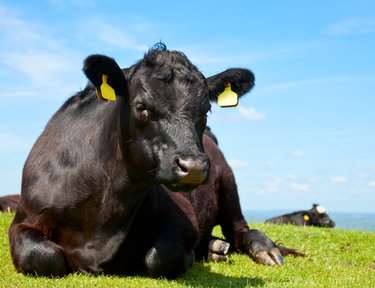USDA confirmed the disease’s presence July 18
By Diego Flammini
Assistant Editor, North American Content
Farms.com
The United States Department of Agriculture (USDA) confirmed an atypical case of Bovine Spongiform Encephalopathy (BSE) in an 11-year-old Alabama cow on July 18.
There are two types of BSE, according to the USDA’s Animal and Health Inspection Service’s National Veterinary Services Laboratories – classical and atypical.
Classical BSE usually occurs when cows ingest contaminated feed. Atypical BSE tends to occur spontaneously in cattle that are eight-years-old or older, according to the USDA.
Officials at an Alabama livestock market noticed the animal was displaying signs of BSE, which include incoordination and aggression. The cow died at that location and did not enter the food cycle.

The Alabama Department of Agriculture praised the surveillance measures in place that keep America’s food safe.
“The response to this case by USDA officials and our department’s professionals led by State Veterinarian Dr. Tony Frazer has been exemplary,” John McMillan, Alabama agriculture commissioner, said in a July 18 statement. “This instance proves to us that our on-going surveillance program is working effectively.”
The surveillance program dates back to a USDA regulation implemented in 2009.
The measures included the removal of “the parts of an animal that would contain BSE should have an animal have the disease – from all animals presented for slaughter,” according to the USDA.
This is the second case of BSE discovered in Alabama cattle.
The first occurred in 2006 after a local farmer noticed one of their cows was unable to stand up.
USDA examined tissue from the cow after its euthanization and confirmed the cow had BSE.